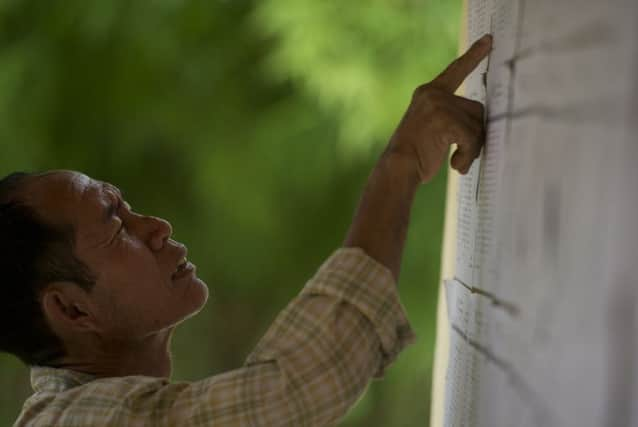Election date set by Burma’s rulers


The military that ruled the south-east Asian nation since 1964 scheduled Burma’s last general election in 2010 under rules widely seen as rigging the outcome to favour a military-backed party, which won the lion’s share of parliamentary seats.
The nominally civilian government in office since 2011 has made widely praised reforms, although progress has stalled.
Advertisement
Hide AdAdvertisement
Hide AdThe announcement of the poll date signed by Union Election Commission chairman Tin Aye was posted yesterday.
Aung San Suu Kyi’s opposition National League for Democracy (NLD) party, which seeks more changes in the constitution, has not yet committed to taking part in the new polls, saying last month that it would decide only after the exact date was announced.
Ms Suu Kyi has repeatedly said the election cannot be free or fair if the constitution is not amended.
The constitution was brought in during military rule, and gives the army a dominant say in the administration of the country.
One clause mandates that 25 per cent of the seats in parliament be held by the military, ensuring that it has veto power over constitutional amendments.
Another clause has the practical effect of barring Ms Suu Kyi from becoming president.
Parliament turned back recent efforts to change those two key rules. The announcement said political parties can submit their candidate list from 20 July until 8 August.
NLD senior leader Han Tha Myint said: “The party will hold a meeting to decide whether to participate in the elections or not. Anyhow, the time given for candidate list submission is too short.”
Advertisement
Hide AdAdvertisement
Hide AdMs Suu Kyi’s party boycotted the 2010 polls as it considered the election rules unfair, but took part in later by-elections after changes were instituted, winning almost all the seats it contested.
It would be expected to mount a strong challenge to the ruling army-backed Union Solidarity and Development Party.
A total of 498 seats for lower and upper houses, 644 region and state parliament seats and 29 national races seats will be up for grabs. There are 83 registered parties according to the election commission list.
Ms Suu Kyi has spend much of the past 20 years under some form of detention because of her efforts to bring some form of democracy to Burma.
In 1991, a year after her NLD party won an overwhelming victory in an election the junta later nullified, she was awarded the Nobel Peace Prize. The committee chairman called her “an outstanding example of the power of the powerless”.
She was sidelined for Burma’s first elections in two decades in November 2010 but was released from house arrest six days later.
As the new government embarked on a process of reform, Ms Suu Kyi – known to many as “The Lady” – and her party rejoined the political process.
On 1 April 2012 she stood for parliament in a by-election, arguing it was what her supporters wanted.
She won a landslide but has since been frustrated at the pace of reforms.